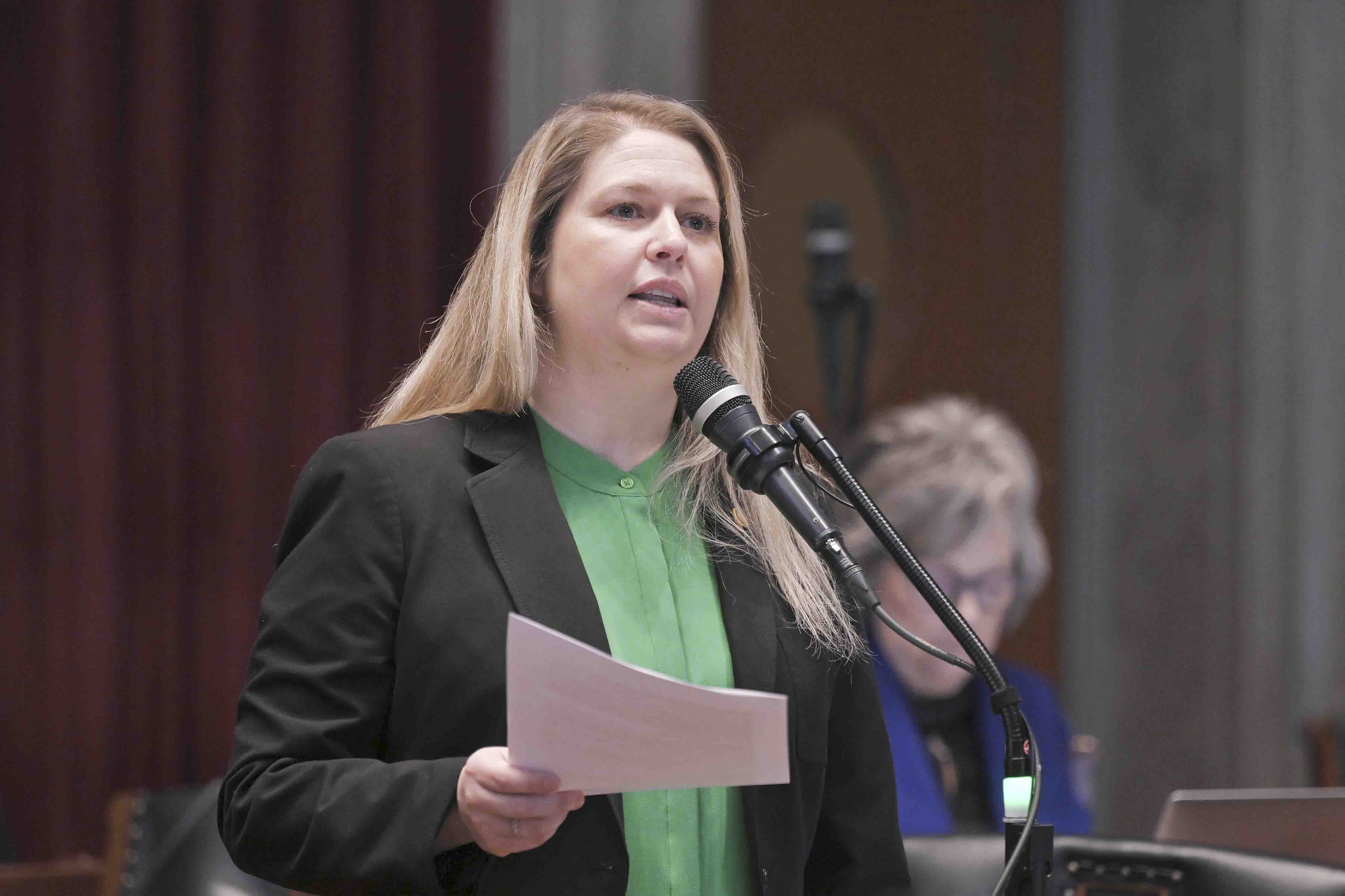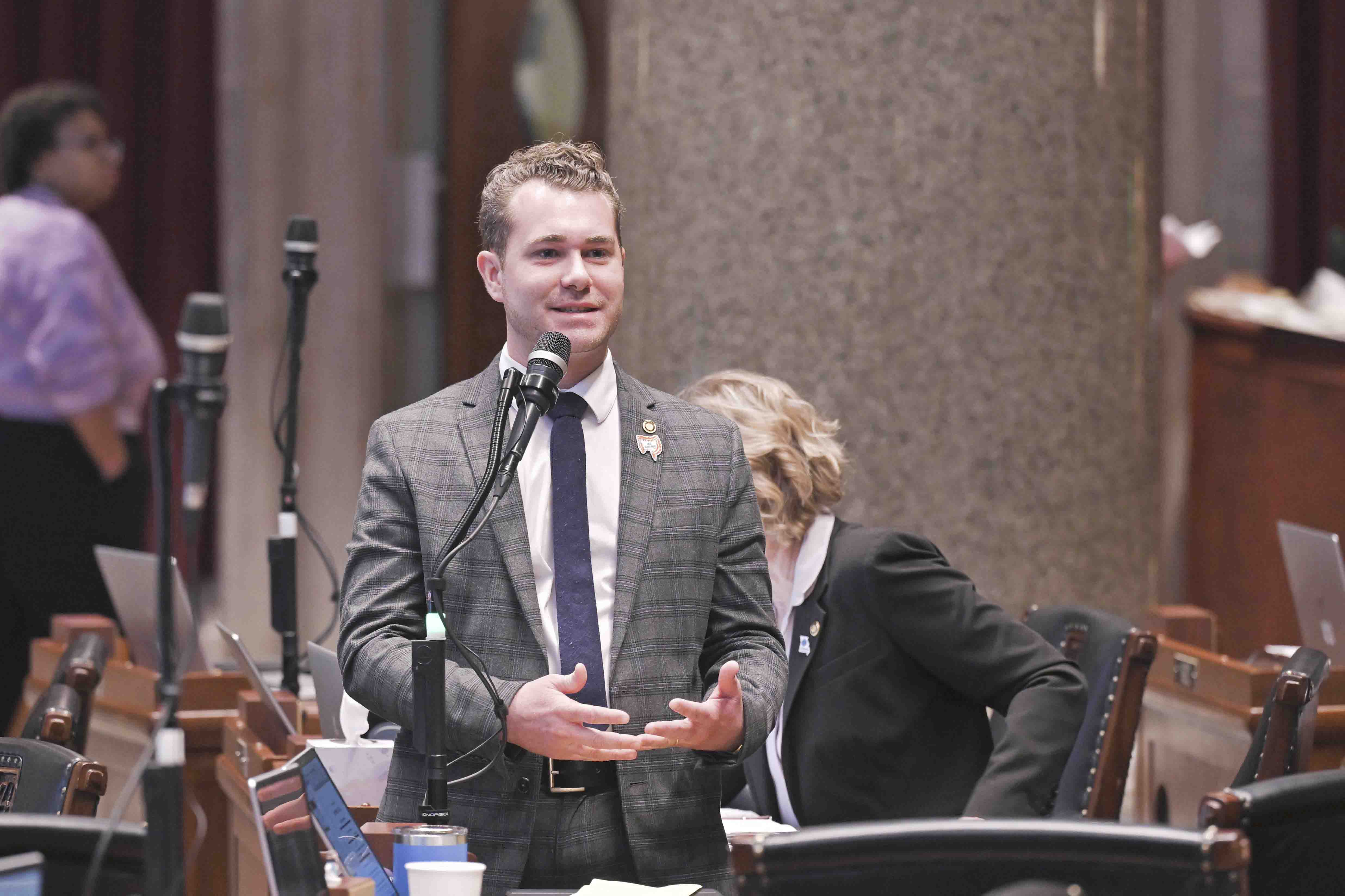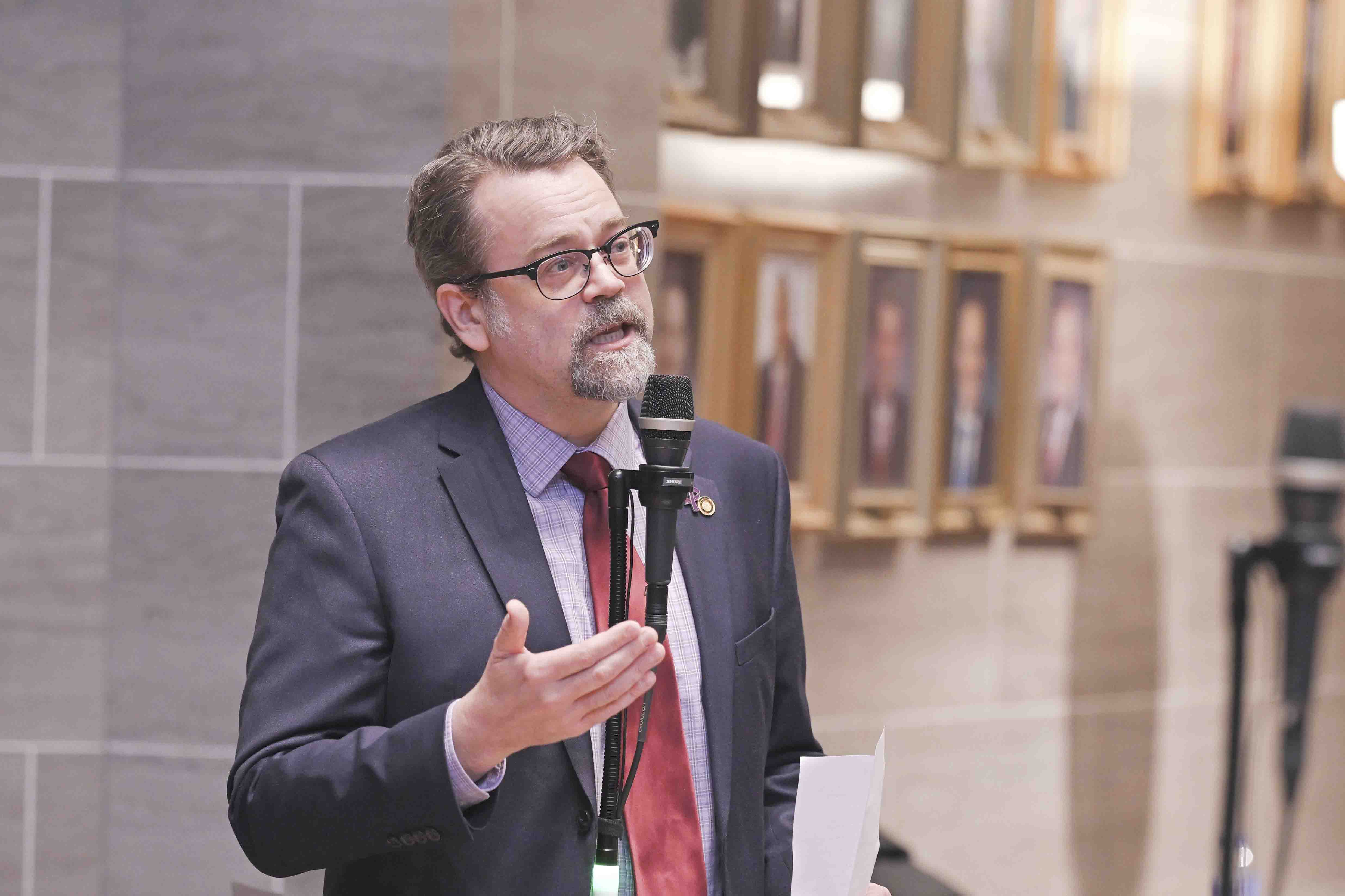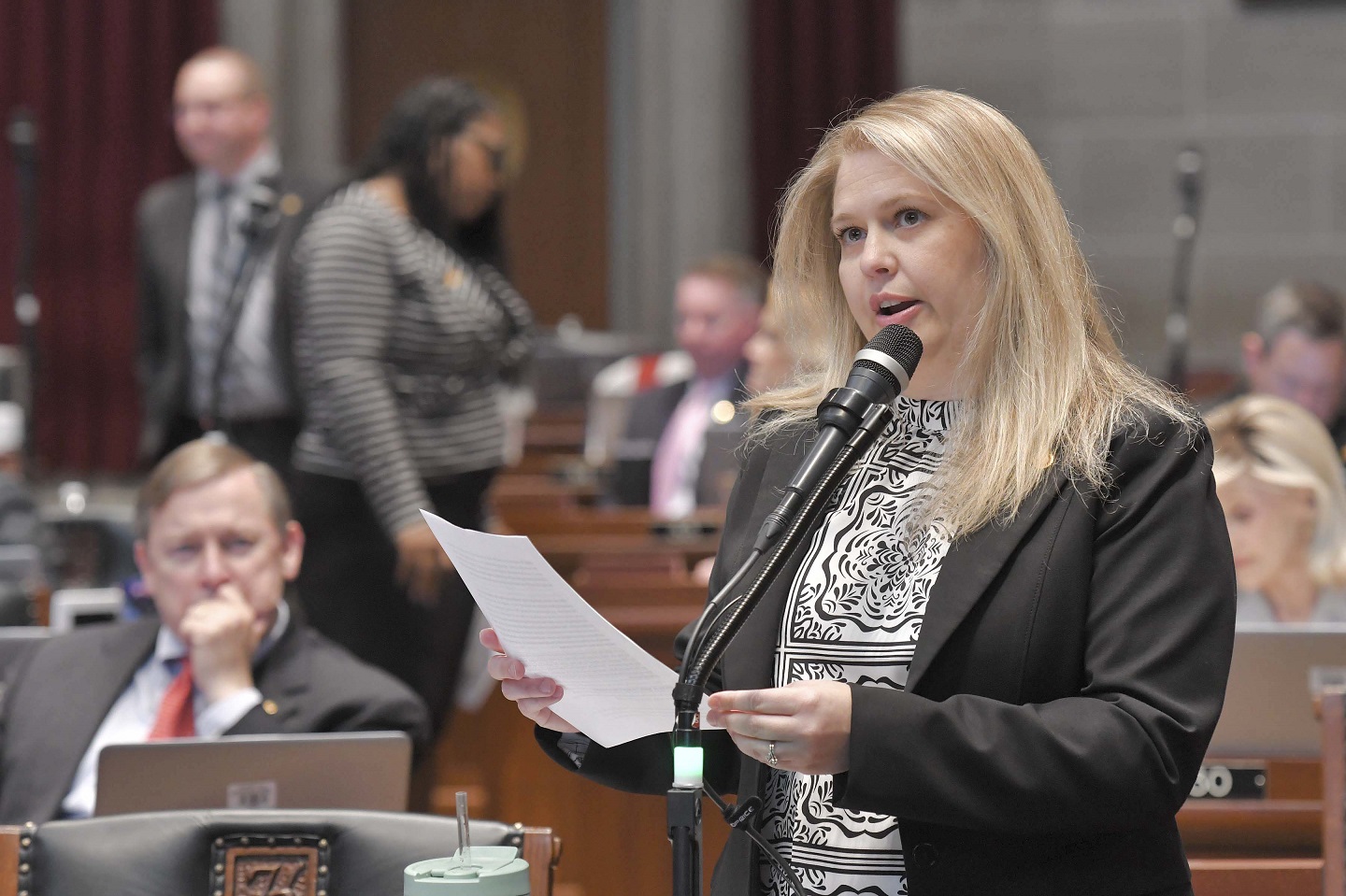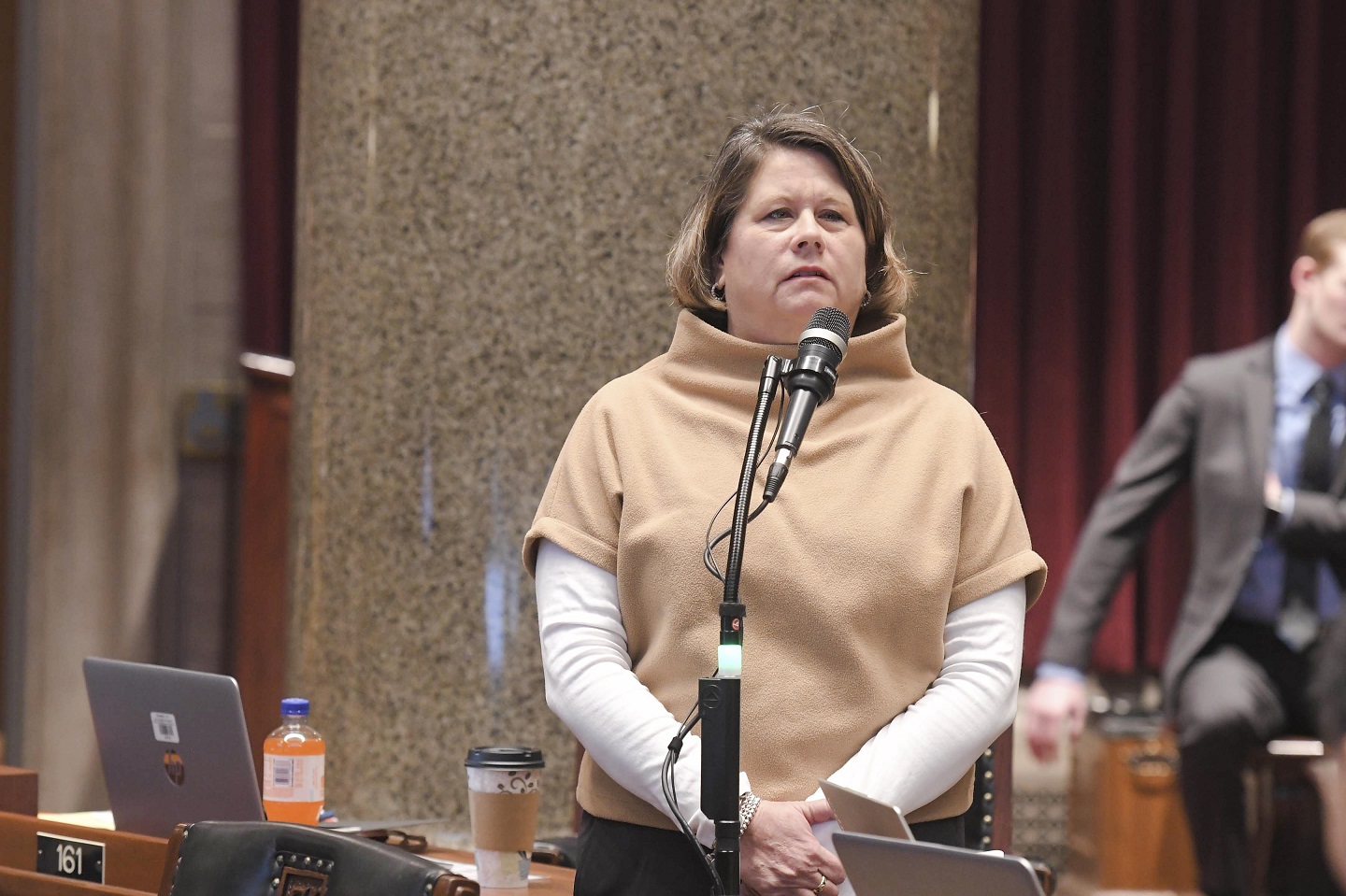The House has voted for the second straight year to decrease wait times for Missourians seeking medical care, while increasing the quality of and access to that care and lowering costs.
Representatives voted overwhelmingly last week to send to the Senate House Bill 618, dealing with prior authorization.
“‘Prior authorization’ is a term used to describe the process for requiring healthcare providers to request approval before providing a healthcare service,” explained bill sponsor Melanie Stinnett (R-Springfield).
She said it is a practice that is, “Getting in the way of health care for every day Missourians.”
Stinnett’s bill would free healthcare providers from having to seek prior authorization from insurance providers for a given procedure for six months, if at least 90 percent of its previous requests for authorization have been approved. The bill also lays out how a provider could maintain that exemption status through ongoing evaluations.
Stinnett, who is a speech-language pathologist, said the current process is giving power and authority to insurance companies. She recalled one case in which an insurer was denying care for one of her patients, based on the finding that the patient’s hearing loss was not congenital.
Other legislators who work in medical fields joined Stinnett in expressing why her legislation is needed.
Springfield Democrat Jeremy Dean worked in several healthcare clinics in his district. He said legislators hear often that Missourians want more time from their physicians.
“We go and see our doctor hopefully one time a year if we’re healthy and it seems like we’re in and out, the doctor doesn’t have time to talk to us, and I think that this is one of the prime reasons that has caused doctors to feel like they are so stretched thin for time, is because they’re doing so many other things to please our insurance companies,” Dean told Stinnett during debate in the House.
Representative Gregg Bush (D-Columbia) is a registered nurse. He said there is a “crisis” in Missouri and the rest of the U.S., of individuals seeking care from medical professionals being impeded by insurance companies.
VIDEO: An exchange between Representatives Gregg Bush (D-Columbia) and Melanie Stinnett (R-Springfield) illustrates why they believe her House Bill 618 should pass:
“We recently heard a story about a person under anesthesia that the insurance company would only pay so much, and they were actually under the anesthesia and had to get authorization to get more. I mean, what kind of absurdity is that?” Peters asked. “Let’s do away with barriers that are hindering our healthy outcomes for our Missourians and let’s pass House Bill 618.”
Ozark Republican Jamie Gragg talked about his own experience as a patient with breathing issues related to allergies which used to result in him frequently being hospitalized for days at a time.
Once he was diagnosed, doctors were able to put him on medication that kept him out of the hospital “however, every year I have to go through a preauthorization, and there are times where I am off the medication for a couple of months because the preauthorization is such a headache. It’s a pain, because there are times when I’m off the medication for a couple of months that I have issues with breathing again.”
“I’m not unique,” Gragg told his colleagues. “This is what people go through, and it’s even more detrimental with some other medications they have to wait for, so this is a very much needed bill.”
Though much of the sentiment expressed during debate suggested that this legislation would benefit patients over insurers, Stinnett said she believes both sides will win if it becomes law.
The House voted 148-4 to send that proposal to the Senate. Similar legislation last year was voted out of the House 146-6, but it did not receive a committee hearing in that chamber.
